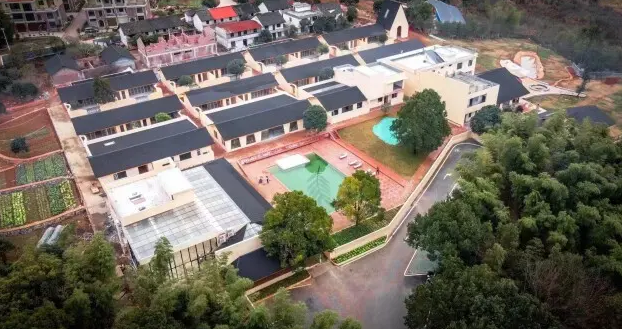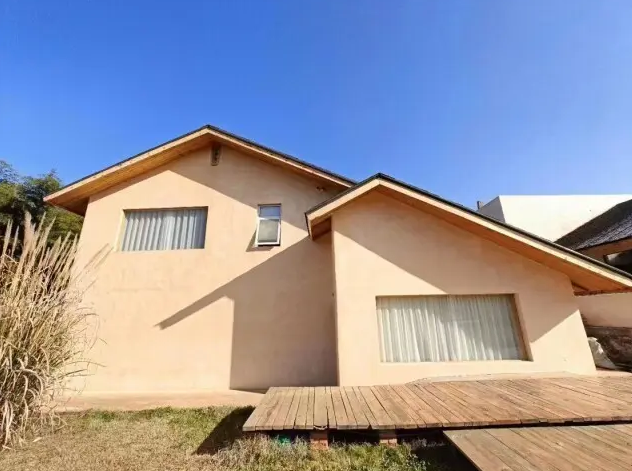Beihu District sees revitalization of old rural houses
2023-05-02
Chenzhou Zhiqing Rural Resort Hotel has received groups of visitors this spring. The hotel, located in Tashui Village of Beihu District, Chenzhou, has rented and renovated a total of 56 old houses, which are over 50 years old, to create a natural and nostalgic experience for visitors while preserving the ancient farming style. This has been well-received by tourists.
After more than half a year of investigation, planning, and demonstration site development, Beihu District officially launched the “Revive Old Houses” campaign in February of this year, accompanied by a series of supporting measures, which have sparked strong reactions from all walks of life. Why did Beihu District take this pioneering initiative?

More than restoration
The passage of time, along with the wear and tear of the elements, has left many abandoned old houses in rural areas vulnerable to deterioration and even destruction.
The turning point began with the “Save Old Houses” campaign. China Foundation for Cultural Heritage Conservation launched the campaign in early 2016 and subsequently implemented county-wide projects in four counties, including Songyang County in Zhejiang Province and Jinxi County in Jiangxi Province. The 2022 Central Document No.1 further emphasized the need.
The Xihe River winds its way through the northwest of Chenzhou City, passing through four counties and districts of the city including Guiyang, Beihu, Suxian, and Yongxing. In recent years, Chenzhou City has focused on building a nationally renowned demonstration area for rural revitalization and a popular destination for rural tourism, which has achieved significant results.
In Beihu District, it has become a major issue that needs to be addressed in promoting rural revitalization: how to effectively utilize and revitalize unused old rural houses.
Beihu District boasts numerous nationally recognized traditional ancient villages, as well as unique ancient villages, houses, temples, schools, and streets, along with a host of historical and cultural resources such as the bridge in the Ming Dynasty and the Tea-horse Ancient Road.
It also has a vibrant economy. It is home to a provincial-level demonstration town for rural revitalization. And it includes a national-level “One Village, One Product” program and seven provincial-level demonstration villages for beautiful countryside. Additionally, there are two villages with collective incomes of over one million yuan, and its rural tourism industry covers a wide range of areas.

Pilot projects and six policies support
Beihu District has proposed a “Revive Old Houses” pilot program, with a focus on the Xihe River area and starting in Huatang Town. It aims to convert idle old houses by various means and lease them to various entities through market-oriented methods. Additionally, there are six supportive policies provided for the tenants, such as rental discounts, political support, project support, publicity promotion, public services, and element guarantees.
Xiao Xiuling is among the first ones who give full play to policy support. She is a tenant of an old house in Maoping Village, Huatang Town. Despite the dilapidated windows, peeling walls, and mossy corners of her old house, Xiao Xiuling saw the development potential of the demonstration zone. She has rented two old houses by the Xihe River, one to operate a farm-to-table restaurant called “Black Rice Sister” and the other to run a countryside tea house called “Gathering around the Stove for Tea.”
On March 9, Xiao was extremely busy when a charity organization came here to carry out an activity, and nearly 100 people arriving by bus filled both the inside and outside of the house.

Values behind old houses
Currently, there are scenes of busy old-house renovations in Huatang Town: in Liyuan Village, an abandoned old theater is being revitalized; in Maoping Village, old houses are being rebuilt into agricultural cultural experience halls; in Wushan Village, over 30 well-preserved houses from the late Ming and early Qing dynasties are being leased out one by one.
The “Revive Old Houses” initiative has attracted much attention. Many professionals in the cultural tourism industry have pointed out that government planning guidance and policy support are urgently needed when assets can yield wealth since there are quite a few people who hope to escape the hustle and bustle of the city and enjoy a pastoral life.
Currently, Chenzhou City is planning to promote the campaign experience of Beihu District, in order to present a better urban and rural environment and a richer supply of cultural and tourism products for hosting the 2nd Hunan tourism development conference.




